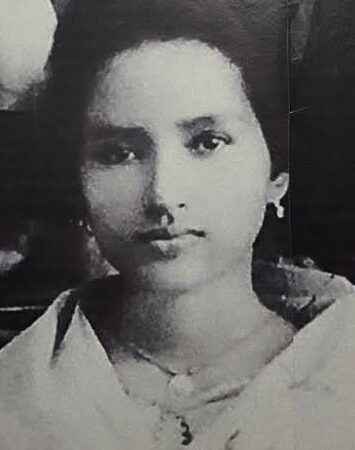Rosa Sevilla de Alvero: A Profile of a Trailblazing Educator Rosa Sevilla de Alvero turned into a trailblazing educator in the Philippines. She was a champion of women’s rights and schooling and fought for the rights of Filipino girls, who will vote and maintain the office. She also founded the first ladies’ college in the
Rosa Sevilla de Alvero: A Profile of a Trailblazing Educator
Rosa Sevilla de Alvero turned into a trailblazing educator in the Philippines. She was a champion of women’s rights and schooling and fought for the rights of Filipino girls, who will vote and maintain the office. She also founded the first ladies’ college in the Philippines.
Rosa was born in the city of Santa Cruz, Manila, in 1881. Her father became a wealthy landowner, and her mother became a schoolteacher. Rosa acquired a very good education and went on to take a look at the University of Santo Tomas. She graduated with a diploma in philosophy and letters in 1903.
After commencement, Rosa became an instructor. She taught at some colleges in Manila, including the celebrated Ateneo de Manila University. In 1908, she married Mariano Alvero, a rich businessman. The couple had four kids.
In 1911, Rosa founded the Asociacion Feminista Filipina (AFF), the first girls’ rights corporation in the Philippines. The AFF fought for women’s right to vote, hold office, and own assets. Rosa also founded the Universidad de Santo Tomas de Aquino, the first ladies’ college in the Philippines.
National Assembly
Rosa became a lively Philippine National Assembly member from 1916 to 1919. In 1919, she helped draft the first Philippine Constitution. She additionally served as the Vice President of the National Assembly from 1919 to 1922.
Rosa continued to fight for women’s rights for the duration of her life. In the 1930s, she was a member of the Women’s Suffrage League, which worked to give Filipino women the right to vote. She also served as the President of the Philippine Federation of Women’s Clubs.
Rosa died in 1941 at the age of 60. She was survived by her husband and four children.
Rosa Sevilla de Alvero became a first-rate female who made an enduring impact in the Philippines. She was a champion of girls’ rights and education and worked tirelessly to enhance the lives of Filipino women. She will be remembered as a trailblazing educator and a real pioneer.
Rosa Sevilla de Alvero: From Spain to the Philippines
Rosa Sevilla de Alvero changed to “born in Spain” in 1855. She changed into a proficient student and excelled in her research. In 1881, she received a diploma in philosophy and literature from the University of Madrid.
Alvero’s passion for training led her to the Philippines, where she became one of the United States’ most respected educators. She became the co-founding father of the Escuela Normal de Maestras, the primary faculty for girl teachers in the Philippines. She also helped set up the Centro Escolar de Senoras, a college for ladies.
Alvero became an advocate for girls’ rights and equality. She believed that education was crucial to empowering girls and assisting them in reaching their full potential. She became a strong voice for social reform, and her paintings helped enhance the lives of women and ladies in the Philippines.
Alvero passed away in 1933, but her legacy continues to encourage women in the Philippines and worldwide.
Rosa Sevilla de Alvero: A Life Devoted to Education
Rosa Sevilla de Alvero was born in the small town of Jala, Pampanga, in the Philippines, in 1864. She turned into the fourth child of Don Crisostomo Sevilla, a wealthy landowner, and Doa Alejandra Alvero, who belonged to a family of Spanish haciendas. Rosa’s parents had been very supportive of her education, and she was able to attend a private school for girls in Manila, where she acquired a strong grounding in the liberal arts.
After completing her training, Rosa Sevilla de Alvero married Don Francisco Javier de los Reyes, a rich sugar planter from Negros Occidentals. The couple had four youngsters; however, only two survived to maturity.
Don Francisco Javier de los Reyes died in 1893, and Rosa Sevilla de Alvero was left a widow at 29. She decided to devote her life to education and enrolled in Manila’s newly opened Normal School for Girls. She graduated at the top of her class in 1895 and became appointed as a teacher within the public school system.
Rosa Sevilla de Alvero quickly rose through the ranks of the instructional staff and was appointed as the first female superintendent of schools in the Philippines in 1903. In this position, she oversaw the reform and modernization of the public college system. She delivered mandatory education for all Filipino kids.
Rosa Sevilla de Alvero served as Superintendent of Schools till her retirement in 1918. She died in 1932 at the age of 68.
Rosa Sevilla de Alvero was a true trailblazer within the field of training. She was the first Filipino woman to attend college and the first to hold a high-ranking position in the government’s academic paperwork. Her paintings helped to result in considerable reforms within the Philippine public school system, and her legacy continues to encourage Filipino educators these days.
Rosa Sevilla de Alvero: Her Legacy Lives On
Rosa Sevilla de Alvero became a Filipina educator and women’s rights advocate. She was born in Iloilo, Philippines, in 1871. She was the first female to receive a diploma from Manila’s University of Santo Tomas. Rosa went directly to look at the University of Paris and the Sorbonne.
De Alvero has become a pioneer in schooling for women in the Philippines. She installed the first primary school for girls in the U.S., the Asociacion Feminista Ilongga. She founded Filipinas, the Philippines’ first women’s magazine, which advocated for women’s rights and equality.
Rosa Sevilla de Alvero and the Foundations of the Philippine Normal School
In the late nineteenth century, the Philippines became involved in a conflict to gain independence from Spanish colonial rule. Among the folks that fought for independence was a younger female named Rosa Sevilla de Alvero. Rosa was born into a wealthy circle of relatives within the metropolis of Iloilo in the Philippines and obtained an excellent education. She married Manuel Alvero, who came from a wealthy family, when she was only eighteen.
Rosa and Manuel had three kids collectively, but tragedy struck when Manuel died unexpectedly in 1896. Rosa became a widow at the age of twenty-five.
In the aftermath of her husband’s demise, Rosa has become worried about the fight for Philippine independence. She joined the Katipunan, a secret society that turned into a movement to overthrow the Spanish colonial government. Rosa quickly rose to a management position within the Katipunan. She became regarded for her bravery and dedication to the cause.
In 1898, the Spanish-American War broke out, and the Philippines became a battleground. The struggle ended in victory for America, and the Philippines became a U.S. colony.
Rosa continued to fight for Philippine independence, and they became one of the leaders of the Philippine Nationalist Party. In 1903, she was elected to the Philippine Assembly and served as an Iloilo representative.
Rosa was a fervent supporter of education and believed education was the key to the Philippines achieving independence. In 1906, she helped establish the Philippine Normal School, which became the first college in the Philippines for training instructors.
Rosa Sevilla de Alvero changed into a fearless chief and a passionate advocate for education. She dedicated her existence to the fight for Philippine independence, and her legacy continues to inspire humans today.
The Life of Rosa Sevilla de Alvero
Rosa Sevilla de Alvero became a Filipina educator who played a pivotal role in improving the Philippine Normal School, now the Philippine Normal University. She also became a lively member of the Asociacion Feminista Filipina, a women’s rights agency founded in 1904.
Born on December 12, 1855, in Molo, Iloilo province, Rosa changed into the daughter of Don Mariano Sevilla, a distinguished local baby-kisser, and Doa Trinidad Alvero. She received her primary education at the Colegio de Santa Ana de Molo, a Catholic ladies’ college, before transferring to Manila to continue her studies at the Colegio de Santa Isabel.
In 1881, Rosa married Don Alejandro Alvero, a rich landowner from Antique. The couple had four youngsters: Alejandro, Maria, Trinidad, and Rosa.
In 1887, Rosa Sevilla de Alvero and her husband donated a chunk of land within the Quiapo, Manila district, to the Philippine authorities to develop a new public school. The following year, the Philippine Normal School was installed on the website. Rosa Sevilla de Alvero served on its first board of trustees.
Rosa Sevilla de Alvero became a robust advocate for women’s rights and training. In 1904, she helped set up the Asociacion Feminista Filipina, one of the first girls’ rights agencies in the Philippines. She additionally served as President of the association from 1907 to 1909.
Rosa Sevilla de Alvero passed away on October 15, 1911, at 56. She is remembered as a pioneering educator and a champion of ladies’ rights within the Philippines.

The Contribution of Rosa Sevilla de Alvero to Education
Rosa Sevilla de Alvero became a Filipina educator and reformer who became instrumental in maintaining the status quo at the Philippine Normal School, now the Philippine Normal University. She was also one of the first women in the Philippines to earn a college diploma.
Born in 1855 in Santa Cruz, Manila, Rosa became the daughter of a wealthy family. She acquired her early training at the Colegio de Santa Rosa, a school for girls founded by her mother, Doa Mara Josefa Zayas y Sotomayor. Rosa continued her research at the University of Santo Tomas, graduating with a diploma in philosophy and literature in 1876.
After graduation, Rosa married Mariano Alvero, a wealthy landowner from Pampanga. The couple had four children, but only one of them, Maria, lived to adulthood.
Under Rosa’s leadership, the Escuela Normal de Maestras de Filipinas quickly became one of the most reputable academic establishments in the Philippines. In 1901, the school became the Philippine Normal School.
Rosa Sevilla de Alvero remained active in the Philippine Normal School until she died in 1916. She is remembered as one of the most important figures in Filipino education history.
The Legacy of Rosa Sevilla de Alvero
Rosa Sevilla de Alvero turned into a Filipino educator and reformer who played a pivotal role within the status quo of the Philippine Normal School, now referred to as the Philippine Normal University. In the early twentieth century, she became a leading advocate for women’s rights in the Philippines.
Born in 1855 in Pagsanjan, Laguna, Rosa Sevilla became the daughter of a wealthy landowner and a member of the Philippine gentry. She received a traditional education in a convent faculty before being married off at 16 to a much older man. The marriage ended in tragedy, and Sevilla was widowed only four years later.
In 1882, Sevilla met Isabelo de los Reyes, a young journalist and radical philosopher who could later come to be one of the leaders of the Philippine Revolution. They have become buddies and have begun operating together to advise social reform in the Philippines. They established the Liga Filipina, a political organization known for supporting independence from Spain, in 1887.
School
Sevilla served as the first director of the Normal School and helped shape its curriculum and pedagogical method. She became a robust advocate for women’s rights and training, believing that teachers should play a critical role in promoting social exchange.
The Normal School was closed down with the aid of the Spanish colonial authorities in 1892; however, it was reopened after the Philippine Revolution in 1898. Sevilla remained its director until she died in 1911.
The Normal School renamed the Philippine Normal University in 1934 in honor of its founder, and it continues to be one of the main establishments of higher learning within the Philippines.
Rosa became a real pioneer in training, and her work inspires instructors and college students. She became a visionary chief who helped lay the rules for the modern Philippine schooling machine.
The Contributions of Rosa Sevilla de Alvero to Philippine Education
Who turned into Rosa Sevilla de Alvero?
Rosa Sevilla de Alvero became a Filipina educator who became instrumental in improving girls’ education in the Philippines. She was born in 1858 in Santa Cruz, Manila, to a wealthy family. Her father, Don Ciriaco Sevilla, became a Spanish merchant, and her mom, Doa Mara Alvero y Borromeo, became a local of Manila. Rosa was the eldest of seven kids.
Rosa received her early education at the Colegio de Santa Isabel, a college for ladies founded by the Sisters of St. Paul of Chartres. She then studied at the Ateneo Municipal de Manila, where she excelled in her studies. After graduating from the Ateneo, she enrolled at the University of Santo Tomas, where she studied philosophy and literature.
In 1881, Rosa married Don Miguel Morayta, a professor at the Ateneo.
The couple had four kids: Miguel, Carmen, Mercedes, and Amelia.
In 1882, Rosa and her husband founded the Instituto de Seoritas, the first school for ladies in the Philippines that provided secondary schooling. The school was later renamed the Colegio de Santa Isabel. Rosa was the primary member of the faculty for many years.
Under her leadership, the Colegio de Santa Isabel became one of the most prestigious schools in the Philippines. The college began to offer college training to its students at some point during her tenure as a major.
Rosa was additionally a champion of women’s rights. She became one of the founders of the Asociación Feminista Filipina. This organization labored for the development of girls in the Philippines. She was also a vocal supporter of the Married Women’s Property Act of 1909, which granted married women the right to own and inherit property.
Rosa Sevilla de Alvero died in 1932. She was survived by her husband and four children.
Rosa Sevilla de Alvero became a key figure in girls’ education in the Philippines. She fervently supported women’s advancement and worked tirelessly to promote equality for all.
What have been her contributions to Philippine education?
Rosa Sevilla de Alvero became a Filipino educator who made extensive contributions to the education sector in the Philippines. She was born in 1855 in the metropolis of Bacolod and was the daughter of a rich family. Her father was a Spanish civil engineer, and her mom became a Filipino mestiza. Rosa obtained her early schooling from her mother and from private tutors. She later attended the Colegio de Santa Isabel, a women’s school in Manila, from which she graduated in 1871.
Rosa married Mariano Alvero, a wealthy sugar planter, in 1873. The couple had four young children. Rosa’s husband died in 1885, leaving her a widow at 30.
Rosa became worried about the subject of training after her husband’s death. She was appointed by the headmistress of the Colegio de Santa Isabel in 1886. She served on this committee for 2 years. During her tenure, she reformed the curriculum and instituted new teaching methods. She also hooked up a library and a laboratory at the school.
In 1888, Rosa Sevilla de Alvero founded the Asociacion Feminina Espanola, a ladies’ affiliation that provided educational and social services to its participants. The association additionally encouraged women’s rights. Rosa served as the corporation’s President from its inception until she died in 1896.
Rosa was also appointed to the Comision Honoraria de Instruccion Primaria, which was in charge of overseeing the Philippines’ top educational system. She served on the faculty from 1890 to 1896.
Rosa Sevilla de Alvero made sizeable contributions to the sector of training inside the Philippines. She was a reformer and an advocate for girls’ rights. She became one of the first Filipino ladies to obtain a college education. Rosa Sevilla de Alvero died in 1896 at the age of 41.
How did her work impact the improvement of education in the Philippines?
Rosa Sevilla de Alvero changed into a Filipino educator who made tremendous contributions to improving schooling in the Philippines. She became the first female to earn a degree from the University of Santo Tomas. She later founded the Centro Escolar de Senoritas, the primary college for girls in the Philippines.
De Alvero became a robust advocate for girls’ training, and they believed it was crucial for the development of the Philippines. She argued that educated girls could be better able to contribute to society and the country’s financial system.
What legacy does she leave behind?
Rosa Sevilla de Alvero was a Filipino educator and girls’ rights advocate. She became one of the first girls to earn a college degree in the Philippines. She co-founded the U.S.’s first ladies’ university. Rosa was also instrumental in forming the National Federation of Women’s Clubs, which worked to promote women’s rights and education in the Philippines.
De Rosa Sevilla de Alvero paintings became instrumental in advancing girls’ rights and education in the Philippines. She was a passionate advocate for women’s rights, and her paintings helped to pave the way for future generations of Filipino ladies. She leaves behind a legacy of empowering girls, and her paintings continue to inspire Filipino girls today



















Leave a Comment
Your email address will not be published. Required fields are marked with *